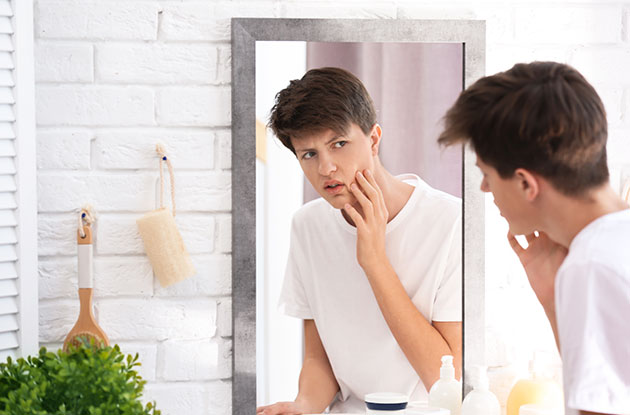
How to Help Your Teen Overcome Self-Consciousness
Teens are growing up a world that makes it easy to compare themselves to others. Here's how to help them cope.
Get kid-friendly activities sent to you!
Get the Best Kid-Friendly Activities
Sent to You Weekly!
Coping Strategies for Teens and Parents
When teens express anxiety or distress about their looks or not fitting in, Dr. Salstrom advises parents to start from a place of “your feelings make perfect sense.”
“It’s not to say that you agree with the statement behind it or the content. If they say, ‘I’m so ugly,’ of course you’re not going to agree with that,” Dr. Salstrom says. “But if we don’t start from the place of ‘it makes perfect sense that this thought/feeling is showing up’ (given our evolutionary and cultural context), then anything we say in that moment has the potential to be invalidating.”
There’s no denying it can be difficult for parents to see their teens go through this stage, but Dr. Rodman explains it’s a normal and healthy part of development—and it does eventually end.
“When you have this low-level or moderate level feedback from your peers, and you feel this drop in self-esteem, that actually feels bad in the short term, but in the long term it leads to greater gains and better outcomes and well-being in adulthood,” Dr. Rodman says.
In late adolescence, a self-protective bias kicks in and teens no longer experience that drop in self-esteem after rejection, Dr. Rodman explains. Older teens start to buffer themselves from their peers’ rejection because they’ve gained social skills and learned the social rules they didn’t have or know as an early adolescent.
“That’s all to say for parents that a little bit of feedback from peers isn’t a catastrophe, and feeling a little down on yourself, that’s just part of being a teenager,” Dr. Rodman says. “I think a helpful reframe is, it just helps kids learn how to get along with their peers.”






